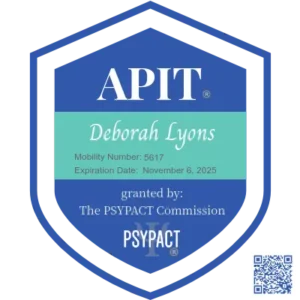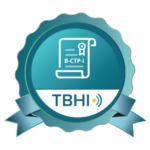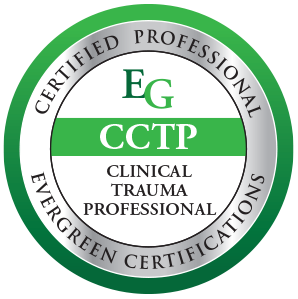Stress is something that we are all challenged to manage in our day to day lives. Recently the following article in Acupuncture Today quoted Dr. Deborah Lyons on a rise in patients struggling to deal with stress and options to manage it better.
| Acupuncture Today – April, 2017, Vol. 18, Issue 04 | |
The Qi Focus: A Guide to Managing Stress
By Pamela E. Ferguson, Dipl. ABT (NCCAOM), AOBTA and GSD-CI, LMT (TX)
Stress, are you experiencing heightened stress levels? Your own, and your clients? Is Trumpitis getting to you? I recently polled a cluster of acupuncturists, Asian Bodywork Therapists (ABT) and psychotherapy colleagues on the issue.
All emphasized the basic need for extra Qi focus and centering to avoid emotional fragmentation.
During the election last year, many psychotherapists experienced multiple visits from stressed clients. ABT is especially valuable — whether alone or together with acupuncture and/or talk therapy. This goes beyond a soothing touch.
Unraveling tight meridians or unblocking clogged acupoints also requires extra clarity and focus from the practitioner. As we all know — it’s not by chance the New York Times published an article on January 26, 2017 titled “The Nations Zoos Know You Need to See Cute Animals Right Now.”
Ease the Tension
Austin based acupuncturist and bodyworker Alighta Averbukh LAc suggests, “Meditation, movement, good nutrition, and learning what one can do to counteract what is going on.” Ah, yes. Involvement in some form or another is crucial to alleviate a feeling many have of hopelessness against the political tsunami.
As another LAc colleague said, “Everyone can do something — even if it’s just volunteering at local detention centers or helping refugee families — and there are plenty of inter-faith based organizations involved. Others are throwing their weight into sanctuary movements.”
Those of us who have completed the Acupuncture Without Borders’ training well know the value of group treatment settings. Just the presence of the group alone is soothing and calming before the application of needles or acupressure, or any form of ABT.
Austin based psychotherapist Dr. Deborah Lyons said, “Clients are having a really difficult time dealing with the here and now, and uncertainty about the future.” She has noticed an up tick in depression, marital stress, and clients who “worry all the time.”
The saddest part, she added, was the despair among younger clients “who felt their voice didn’t matter.” She uses cognitive behavior techniques to help them get grounded, and emphasizes the need for self-care and “involvement.”
Isabelle Chen-Angliker LAc, MD (Switzerland), CP-AOBTA® who practices acupuncture and Tuina in Austin, advised one of her anxious clients, “To soothe her earth element by humming along to music,” and also to “chant while driving.” She tells clients to, “Balance stressful news by looking at the beauty in nature and art, and practicing Yoga or Taiqi.”
Qi to Success
Harmonizing fragmented Qi is the key. Helping clients achieve equilibrium in a time of stress is an art in itself. Certainly as practitioners we need to increase our Qi exercises and visualize ourselves surrounded by a bubble of Qi to avoid being scattered by a client’s notched up stress. This takes time and focus.
Those of us who have experienced burnout in the past well know the importance of mindful practices to avoid being scattered when surrounded by stress-on-steroids.How well I remember a tight moment on the New York subway years ago when the stress level for all of us soared as yet more passengers squeezed in at each station. I stood there crushed on all sides, held on to my purse, closed my eyes, did some deep breathing, and began to meditate. When I opened my eyes literally moments later, I faced peaceful expressions, curiosity, and soft smiles.
Remarkably, space opened up in the compartment. Tensions eased. A voice quipped, “Lady, I don’t know what you’re doing. But it sure helps. You some kinda witch?”
Within My Studies
Li
Pinpointing stress/overload at the core of a client’s ailment or problem requires subtle detection and creative solutions that go beyond meridians and acupoints. How well I recall a moment when I was teaching in Hamburg Germany, and my students asked me if they could pay for me to work on a young dissident “Li” from China who was experiencing ringing in his ears.
I asked them a little about Li and if he had a local support group. “No,” they admitted, “he feels very isolated.” Ok, I told them, don’t waste money on me. Buy Li a return ticket to Paris where he can meet fellow dissidents. He’s missing his roots. Which is exactly what they did. Off Li went on the train to Paris. The ringing in his ears stopped.
Viktor
Viktor J. a Swiss MD, also sought my help in Zürich years ago because of ringing in his ears. Similar symptoms; very different cause. He had consulted top specialists in the ear, nose and throat department at the university hospital to no avail.
Viktor came to me via a mutual friend because he was desperate. When I met him, it was easy to recognize a highly conscientious physician who was overloaded with his patients’ problems.
His ears — literally couldn’t take anymore. He told me his greatest joy was to play the violin with a quartet. Ah, a possible solution in the water element? I advised Viktor to experiment with different composers to see which symphonies or songs best harmonized or modified the ringing in his ears. And then to play that music while he took a long warm bath.
I also taped electronic diodes on SI 19, a useful acupoint for ringing in the ears. Viktor called within a week and said the problem had dropped from a 10 to a 5 and he intended to maximize his “harmonic bath time.”
Helene
I encountered a third and very different case of ringing in the ears in Montreal — interestingly enough, also an MD, and one of my Zen Shiatsu graduates. As I knew her well, it wasn’t hard to sense marital problems at the core of her stress. Petty things got to her. “He won’t even take out the garbage,” she told me.
To complete a session, I used a technique that is very useful for calming ringing in the ears, mainly when it’s a side effect of whiplash. I sit at the head of the work table and perform a simple neck /head routine, loosening and easing UB and GB meridians, then, by turn, holding UB10, GB20, GB21, SI 19, UB1, UB2 and SJ23, ending with DU20.
Finally, without touching the ears, I pointed my left and right index fingers toward the ear drums and imagined QI moving from inner ear to inner ear. It’s an effective 3D technique. As soon as I sensed the power of the Qi line I moved my hands back and forth as though playing an imaginary accordion. And then completed the routine by withdrawing my hands very slowly, to place one thumb over the other quietly on DU20. It worked like a charm.




